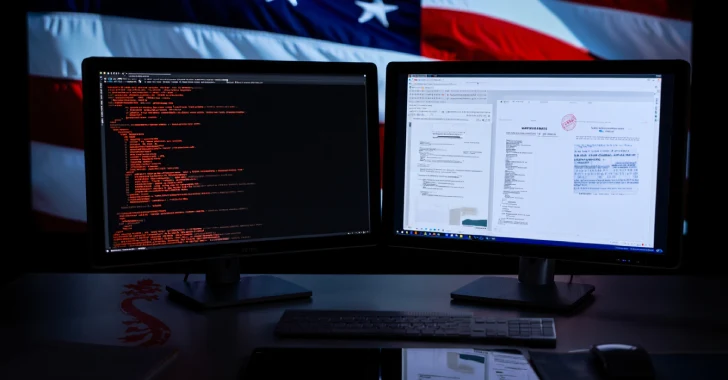China-Linked APT41 Hackers Target U.S. Trade Officials During 2025 Negotiation Talks
The House Select Committee on China has issued a formal advisory regarding an ongoing series of targeted cyber espionage campaigns linked to the People’s Republic of China (PRC). These campaigns aim to compromise organisations and individuals involved in U.S.–China trade policy and diplomacy, including U.S. government agencies, business organisations, law firms, think tanks, and at least one foreign government. The committee reported that suspected Chinese threat actors impersonated Republican Party Congressman John Robert Moolenaar in phishing emails sent to trusted counterparts. Their objective was to deceive recipients into opening files and links that would provide unauthorized access to sensitive information and systems.
The ultimate goal of these attacks was to steal valuable data while using software and cloud services to obscure their activities, a common tactic employed by state-sponsored hackers to avoid detection. Congressman Moolenaar, who chairs the House Select Committee on the Communist Party of China (CCP), stated that this incident exemplifies China’s offensive cyber operations aimed at stealing American strategies to leverage against Congress, the Administration, and the American public. He affirmed that they would not be intimidated and would continue their efforts to ensure America’s safety.
This advisory follows a report from The Wall Street Journal, revealing that several trade groups, law firms, and U.S. government agencies received an email from Moolenaar soliciting input on proposed sanctions against China. The email allegedly contained an attachment with a draft of the legislation that, when opened, deployed malware to collect sensitive data and gain persistent access to the targeted organisations. The attack is believed to be linked to APT41, a notorious hacking group known for its cyber espionage activities across various sectors and regions.
In response, the Chinese embassy in Washington stated that China firmly opposes all forms of cyber attacks and cyber crime, and it also condemned the unfounded smearing of others. Yejin Jang, vice president of government affairs at Abnormal AI, noted that by impersonating Congressman Moolenaar, a known critic of Beijing, the attackers created a sense of urgency and legitimacy that prompted quick responses. She emphasised that political communication extends beyond official government channels, and sophisticated adversaries exploit this reality by masquerading as trusted officials through personal or non-official means, thereby bypassing traditional security measures. The committee also highlighted that this campaign follows a spear-phishing incident in January 2025 that targeted its staffers.
Categories: Cyber Espionage, U.S.-China Relations, Phishing Attacks
Tags: Cyber Espionage, People’s Republic of China, U.S.-China Trade, Phishing Emails, Unauthorized Access, State-Sponsored Hackers, APT41, Malware, Sensitive Data, Cyber Attacks
